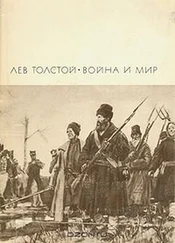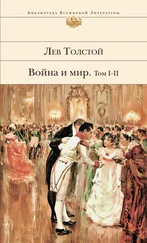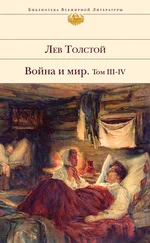| The French columns that had advanced beyond the village went back; but as though in revenge for this failure, the enemy placed ten guns to the right of the village and began firing them at Tushin's battery. |
Французские колонны, выступившие за деревню, ушли назад, но, как бы в наказание за эту неудачу, неприятель выставил правее деревни десять орудий и стал бить из них по Тушину. |
| In their childlike glee, aroused by the fire and their luck in successfully cannonading the French, our artillerymen only noticed this battery when two balls, and then four more, fell among our guns, one knocking over two horses and another tearing off a munition-wagon driver's leg. |
Из-за детской радости, возбужденной пожаром, и азарта удачной стрельбы по французам, наши артиллеристы заметили эту батарею только тогда, когда два ядра и вслед за ними еще четыре ударили между орудиями и одно повалило двух лошадей, а другое оторвало ногу ящичному вожатому. |
| Their spirits once roused were, however, not diminished, but only changed character. |
Оживление, раз установившееся, однако, не ослабело, а только переменило настроение. |
| The horses were replaced by others from a reserve gun carriage, the wounded were carried away, and the four guns were turned against the ten-gun battery. |
Лошади были заменены другими из запасного лафета, раненые убраны, и четыре орудия повернуты против десятипушечной батареи. |
| Tushin's companion officer had been killed at the beginning of the engagement and within an hour seventeen of the forty men of the guns' crews had been disabled, but the artillerymen were still as merry and lively as ever. |
Офицер, товарищ Тушина, был убит в начале дела, и в продолжение часа из сорока человек прислуги выбыли семнадцать, но артиллеристы всё так же были веселы и оживлены. |
| Twice they noticed the French appearing below them, and then they fired grapeshot at them. |
Два раза они замечали, что внизу, близко от них, показывались французы, и тогда они били по них картечью. |
| Little Tushin, moving feebly and awkwardly, kept telling his orderly to "refill my pipe for that one!" and then, scattering sparks from it, ran forward shading his eyes with his small hand to look at the French. |
Маленький человек, с слабыми, неловкими движениями, требовал себе беспрестанно у денщика еще трубочку за это , как он говорил, и, рассыпая из нее огонь, выбегал вперед и из-под маленькой ручки смотрел на французов. |
| "Smack at 'em, lads!" he kept saying, seizing the guns by the wheels and working the screws himself. |
- Круши, ребята! - приговаривал он и сам подхватывал орудия за колеса и вывинчивал винты. |
| Amid the smoke, deafened by the incessant reports which always made him jump, Tushin not taking his pipe from his mouth ran from gun to gun, now aiming, now counting the charges, now giving orders about replacing dead or wounded horses and harnessing fresh ones, and shouting in his feeble voice, so high pitched and irresolute. |
В дыму, оглушаемый беспрерывными выстрелами, заставлявшими его каждый раз вздрагивать, Тушин, не выпуская своей носогрелки, бегал от одного орудия к другому, то прицеливаясь, то считая заряды, то распоряжаясь переменой и перепряжкой убитых и раненых лошадей, и покрикивал своим слабым тоненьким, нерешительным голоском. |
| His face grew more and more animated. |
Лицо его всё более и более оживлялось. |
| Only when a man was killed or wounded did he frown and turn away from the sight, shouting angrily at the men who, as is always the case, hesitated about lifting the injured or dead. |
Только когда убивали или ранили людей, он морщился и, отворачиваясь от убитого, сердито кричал на людей, как всегда, мешкавших поднять раненого или тело. |
| The soldiers, for the most part handsome fellows and, as is always the case in an artillery company, a head and shoulders taller and twice as broad as their officer-all looked at their commander like children in an embarrassing situation, and the expression on his face was invariably reflected on theirs. |
Солдаты, большею частью красивые молодцы (как и всегда в батарейной роте, на две головы выше своего офицера и вдвое шире его), все, как дети в затруднительном положении, смотрели на своего командира, и то выражение, которое было на его лице, неизменно отражалось на их лицах. |
| Owing to the terrible uproar and the necessity for concentration and activity, Tushin did not experience the slightest unpleasant sense of fear, and the thought that he might be killed or badly wounded never occurred to him. |
Вследствие этого страшного гула, шума, потребности внимания и деятельности Тушин не испытывал ни малейшего неприятного чувства страха, и мысль, что его могут убить или больно ранить, не приходила ему в голову. |
| On the contrary, he became more and more elated. |
Напротив, ему становилось всё веселее и веселее. |
| It seemed to him that it was a very long time ago, almost a day, since he had first seen the enemy and fired the first shot, and that the corner of the field he stood on was well-known and familiar ground. |
Ему казалось, что уже очень давно, едва ли не вчера, была та минута, когда он увидел неприятеля и сделал первый выстрел, и что клочок поля, на котором он стоял, был ему давно знакомым, родственным местом. |
| Though he thought of everything, considered everything, and did everything the best of officers could do in his position, he was in a state akin to feverish delirium or drunkenness. |
Несмотря на то, что он всё помнил, всё соображал, всё делал, что мог делать самый лучший офицер в его положении, он находился в состоянии, похожем на лихорадочный бред или на состояние пьяного человека. |
| From the deafening sounds of his own guns around him, the whistle and thud of the enemy's cannon balls, from the flushed and perspiring faces of the crew bustling round the guns, from the sight of the blood of men and horses, from the little puffs of smoke on the enemy's side (always followed by a ball flying past and striking the earth, a man, a gun, a horse), from the sight of all these things a fantastic world of his own had taken possession of his brain and at that moment afforded him pleasure. |
Из-за оглушающих со всех сторон звуков своих орудий, из-за свиста и ударов снарядов неприятелей, из-за вида вспотевшей, раскрасневшейся, торопящейся около орудий прислуги, из-за вида крови людей и лошадей, из-за вида дымков неприятеля на той стороне (после которых всякий раз прилетало ядро и било в землю, в человека, в орудие или в лошадь), из-за вида этих предметов у него в голове установился свой фантастический мир, который составлял его наслаждение в эту минуту. |
| The enemy's guns were in his fancy not guns but pipes from which occasional puffs were blown by an invisible smoker. |
Неприятельские пушки в его воображении были не пушки, а трубки, из которых редкими клубами выпускал дым невидимый курильщик. |
| "There... he's puffing again," muttered Tushin to himself, as a small cloud rose from the hill and was borne in a streak to the left by the wind. "Now look out for the ball... we'll throw it back." |
- Вишь, пыхнул опять, - проговорил Тушин шопотом про себя, в то время как с горы выскакивал клуб дыма и влево полосой относился ветром, - теперь мячик жди - отсылать назад. |
| "What do you want, your honor?" asked an artilleryman, standing close by, who heard him muttering. |
- Что прикажете, ваше благородие? - спросил фейерверкер, близко стоявший около него и слышавший, что он бормотал что-то. |
| "Nothing... only a shell..." he answered. |
- Ничего, гранату... - отвечал он. |
| "Come along, our Matvevna!" he said to himself. |
"Ну-ка, наша Матвевна", говорил он про себя. |
| "Matvevna" * was the name his fancy gave to the farthest gun of the battery, which was large and of an old pattern. |
Матвевной представлялась в его воображении большая крайняя, старинного литья пушка. |



